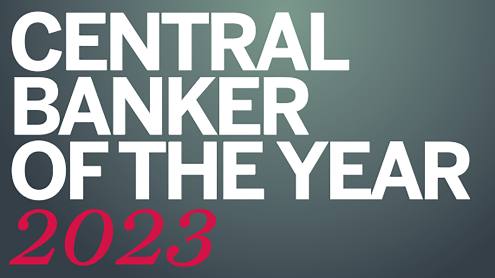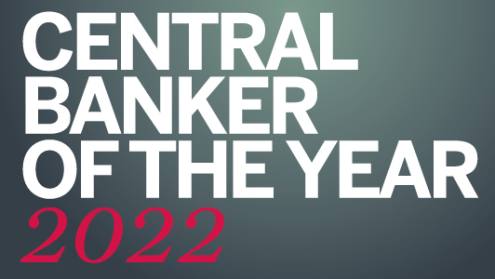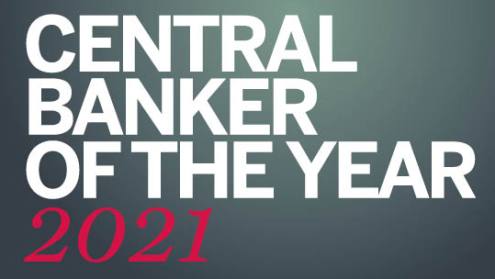Global central bank governor of the Year, Zeti Akhtar Aziz , Governor, Bank Negara Malaysia
Tan Sri Dato’ Zeti Akhtar Aziz, governor of Bank Negara Malaysia, the central bank, is The Banker ’s central bank governor of the year. Her continued pioneering work to build the Islamic finance industry and establish Malaysia at the forefront shines out. No less important, she showed a deft hand in guiding the Malaysian economy onto a path of solid growth.
As a result of her efforts, Malaysia leads Bahrain and the United Arab Emirates as the centre of Islamic finance. Islamic banking accounts for 9.2% of Malaysia’s banking assets and the government wants that share to rise to 20% by 2010.
Islamic banking and finance initially evolved as a form of financial intermediation for the Islamic community to conduct financial transactions that conform to Islamic tenets. Although no accurate data exists on the size of the market, it is estimated to be worth about $280bn, growing at 15% per year. Assets could rise to $1000bn.
“For Islamic banking and finance to be sustainable, compliance with Shariah principles alone is not sufficient. Over the long run, customers and businesses demand quality in the products and services that Islamic finance offers. This is the challenge for Islamic banking and finance: to be able to provide a comprehensive range of Islamic financial products and services that are not only innovative and competitive but Shariah compliant,” says Dr Zeti.
Bank Negara leads numerous initiatives to develop the financial and legal infrastructures in the Islamic banking industry. These include new disclosure standards for Islamic banks and court procedures to handle cases involving Islamic finance.
Malaysia hosts the newly-created Islamic Financial Services Board (IFSB), which will be the central agency regulating Islamic financial instruments. It has the task of promoting the Islamic financial services industry worldwide, entrenching Malaysia as the centre of Islamic banking worldwide.
Recently, Malaysia announced that it would welcome foreign Islamic banks into the domestic market. In 2002, it completed the world’s first Islamic global bond issue, lead managed by HSBC.
On the home front, Malaysia’s economy grew 5.1% in the third quarter of last year, on the back of increased electronic shipments and tourism. Full year growth for 2003 is likely to be more than 4.5%, according to the central bank. Bank Negara forecasts 6% growth next year.
Dr Zeti believes that higher demand can be met without a build-up in inflationary pressures, given the existence of excess capacity, an ability to increase supply, the competition on prices and stable labour market conditions.
She also says that the ringgit – which is pegged at 3.80 to the dollar – remains at a “fair value”, supported by robust foreign exchange reserves, low inflation, current account surpluses and low external debt. The tumbling greenback has strengthened Malaysia’s competitiveness.
Central Bank governor of the Year, Europe: Leszek Balcerowicz, Governor, Narodowy Bank Polski, Poland
Central bank independence is a fundamental tenet of economic orthodoxy. In Poland, repelling the tide of government interference is becoming something of a special forte to central bank governor Leszek Balcerowicz, which is why The Banker is recognising him as central banker of the year for Europe.
Last year, the then finance minister Grzegorz Kolodko tried to push through a budget plan that would have freed up about a third of the central bank’s revaluation provision for EU accession purposes. Mr Balcerowicz balked, saying that this would jeopardise the National Bank’s credibility. Mr Kolodko resigned, a result of Poland’s chaotic budgetary process.
The deficit was forecast to hit 5% of GDP in 2003, albeit on target, and is set to widen to 5.6% of GDP this year and even worse if contributions to the pension fund are included.
This has knocked the zloty, which went down sharply against the euro and to a lesser extent against the dollar. In November, rating agency Standard & Poor’s downgraded Poland, cutting its rating of long-term local currency sovereign credit from A to A-minus and its rating for short-term debt from A1 to A2. The agency cited the country’s high budget deficits and the rapid rise in debt as reasons.
This puts Mr Balcerowicz on a collision course with the government. He wants Poland to join the euro as soon as possible, even in 2007. The government, however, has indicated that it will be impossible to meet the Maastricht fiscal criteria before 2007, which means an earliest possible date for monetary union would be 2009.
Mr Balcerowicz can be otherwise pleased with his work. Inflationary pressures are modest. Consumer prices are rising at just 0.7% on an annual basis; producer prices are rising slightly faster. As inflation has been tamed, interest rates have fallen. After a dismal economic performance since late 2000, the Polish economy appears to be recovering. Output grew 4% in the third quarter and the government forecasts that the economy will grow by 3.5% for the whole of 2003. The recovery is broadly based and is expected to accelerate to 4.1% in 2004.
Mr Balcerowicz is providing a resolutely steady hand, which might prove crucial if accession and monetary union hopes are to be realised.
Central Bank governor of the Year, Americas: Julio de Brun, President, Banco Central del Uruguay
Uruguay’s central bank president Julio de Brun did a lot to steady the ship in 2003. Having seen off the crisis that poleaxed the economy in 2002 – shrinking output by 10.8% – he has guided the main economic indicators back to levels approaching normality, marking him out as The Banker ’s central banker of the year for the Americas. Third quarter economic growth was 2.4% on an annualised basis and the economy is expected to grow by at least 4% next year. Retail prices were up 10.84% in the 12 months to the end of November, comparing well with 25.94% in 2002 and within the government’s target of 11%.
Uruguay descended into crisis following Argentina’s financial collapse of 2001/02, which prompted Argentines to withdraw dollars they held in Uruguayan accounts. That triggered a run on Uruguay’s banks and a plunge in the currency. Mr De Brun played a pivotal role in Uruguay’s “voluntary” debt restructuring, a deal with creditors that extended the maturity on bonds. It avoided a debt default but was arranged conditional on certain reforms.
Mr De Brun has initiated a number of banking sector reforms and is focused on rebuilding confidence in the sector. In particular, the IMF praised the central bank for improved transparency of monetary policy, anchoring public expectation and building a track record for monetary policy credibility.
To sustain recovery, the Inter-American Development Bank (IDB) approved a $200m loan to boost the Uruguayan banking system, aiming to stabilise banks and strengthen the regulatory framework for the supervision of public and private banks in accordance with adjustments and reforms agreed with the IMF, the World Bank and the IDB. Investors have taken note. The average risk premium on the country’s bonds has fallen from a peak of 18 percentage points above the interest rate on US Treasury bonds to less than six.
Uruguay faces an uncertain future. In a recent referendum, 60% of voters elected to repeal a law effectively privatising the state oil company, marking a clear shift in attitudes to the left. Elections are due in October next year, possibly ushering in a leftwing party. There is little doubt that will heighten investors’ risk perception.
Central Bank governor of the Year, Africa and Middle East, Hamad Al-Sayari , Governor, Saudi Arabian Monetary Agency
The experienced governor of the Saudi Arabian Monetary Agency (SAMA), Hamad Al-Sayari, is The Banker ’s central banker of the year for the Middle East and Africa. At a time of considerable turmoil in the region due to the war in Iraq, the Saudi financial sector was not only able to remain rock steady but has been able to produce improved performances and introduce important new initiatives.
Sama, under Mr Al-Sayari, has earned a reputation over many years for safe and sound management and this steadiness has allowed Saudi banks to prosper; and also the sector has not experienced the volatility or flights of fancy that have devastated many growing markets around the world. In June 2003, US rating agency Moody’s Investors Service upgraded the kingdom’s ratings, reflecting the removal of some of the uncertainties in the region and the inherent stability in the financial sector.
The central bank has also created an environment for the growth of consumer finance, an important area and one that has expanded rapidly in the past year or more. On the back of high oil prices, healthy economic expansion and consumer finance growth, the profits of the 10 Saudi commercial banks grew markedly by 14.3% to SR9.3bn ($2.5m) during the first nine months of 2003 compared with SR8.2bn in the same period of 2002, and annualised return on equity expanded to a healthy 21.69% during the first three quarters of 2003 compared with a ratio of 20.56% the previous year.
Innovation has accompanied this good performance. A new capital markets law was announced in June and this will not only open up capital markets activities and provide a further springboard for growth, but will allow new financial institutions and services to enter the market. Deutsche Bank and HSBC are setting up new institutions in the kingdom and new laws will not only help to develop the overall banking and insurance markets but provide much-needed vehicles for investment and help to stimulate the privatisation process.
These are all significant developments in the kingdom and the quietly spoken Mr Sayari deserves praise for overseeing the steady implementation of these major changes.






